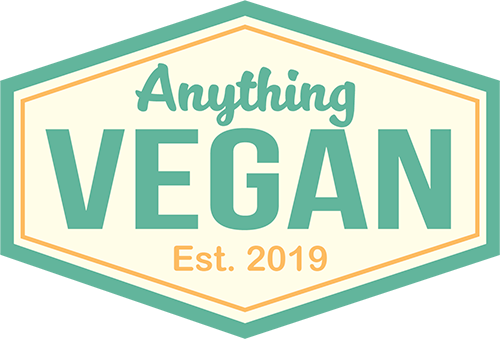Vegan Dogs - A healthy lifestyle or going against nature
When we think of veganism, dogs may not be the first creatures that come to mind. However, as the popularity of plant-based diets continues to rise, an increasing number of pet owners are considering switching their furry friends to vegan diets. But is it a healthy lifestyle choice for dogs, or does it go against their natural carnivorous instincts?
In this blog, we'll dig our paws into the debate surrounding vegan diets for dogs, examining the potential health benefits and the concerns it raises. We'll navigate through the complexities of canine nutrition, uncover fascinating facts about dogs' digestive capabilities, and explore whether a vegan lifestyle aligns with their natural instincts.

Understanding Canine Nutrition
When it comes to our furry friends, their nutrition is of utmost importance. Dogs, being natural omnivores, can thrive on both meat-based and plant-based diets. This brings us to the intriguing topic of vegan dogs.
Understanding canine nutrition is key. Dogs require a balance of essential nutrients to maintain their health and vitality. While meat provides them with important nutrients like protein and certain vitamins, a well-planned vegan diet can meet their nutritional needs as well.
Plant-based protein sources such as legumes, grains, and vegetables can provide dogs with the necessary amino acids for their overall well-being. However, careful consideration must be given to ensure they receive essential nutrients like taurine and vitamin B12, which are primarily found in animal-based products.
Ultimately, the decision to feed a vegan diet to dogs should be made in consultation with a veterinarian. They can provide guidance on appropriate nutrient supplementation and monitor the dog's overall health. With proper planning and care, a vegan diet can be a healthy and sustainable lifestyle choice for our canine companions.

The Vegan Dog Diet and the Benefits
A vegan dog diet can provide numerous health benefits while embracing an ethical and compassionate lifestyle. However, it's crucial to work closely with a veterinarian to ensure the nutritional needs of your furry friend are met. So, whether you're barking for a cruelty-free lifestyle or exploring new dietary options, vegan dogs are proving that a plant-based approach can be positively healthy and kind to all creatures.
Benefits of Vegan Dog Diet
Improved Digestion
One of the significant benefits of a vegan dog diet is improved digestion. Plant-based ingredients are often easier for dogs to digest, reducing gastrointestinal issues. The fiber content in vegetables and grains promotes regular bowel movements, preventing constipation and easing digestion. Vegan diets also tend to be lower in common allergens, such as meat proteins, which can cause digestive sensitivities in some dogs. By eliminating potential triggers, vegan diets can alleviate bloating, gas, and other discomforts. With a happier tummy, your furry friend can enjoy mealtime without the worry of digestive woes, leading to a healthier and more contented canine companion.
Allergy Relief
For dogs dealing with allergies, a vegan diet can work wonders. By eliminating common allergens found in meat proteins, such as beef, chicken, or fish, a plant-based diet offers relief and improved quality of life for allergy-prone pups. Plant-based proteins, including legumes, grains, and vegetables, provide essential amino acids without triggering allergic reactions. These protein sources can be easier for dogs to digest, reducing the likelihood of gastrointestinal upset.
Maintaining a Healthy Weight
Weight management is a crucial aspect of a dog's overall health. A vegan diet can be an excellent tool for achieving and maintaining a healthy weight in our canine companions. Plant-based diets are often lower in calories and fat while being rich in fiber, which can promote a feeling of fullness. By feeding dogs a balanced vegan diet, pet owners can help their furry friends reach their ideal weight, preventing obesity-related health issues and promoting vitality.
Increased Energy
One of the remarkable benefits of a vegan dog diet is the burst of increased energy it can provide. Plant-based foods are rich in complex carbohydrates, which release energy slowly, providing a sustained fuel source throughout the day. This boost of energy can lead to more playfulness, vitality, and overall liveliness in our furry friends. With the right balance of nutrients and proteins derived from plant-based sources, dogs can experience enhanced endurance and a spring in their step.
Environmental Impact
By opting for a vegan diet for dogs, we reduce their ecological pawprint. Animal agriculture, which includes meat-based pet food production, has a significant impact on deforestation, water consumption, and greenhouse gas emissions. Plant-based dog diets require fewer resources, such as land and water, and emit fewer greenhouse gases. By making a compassionate choice for our pets, we actively contribute to reducing our carbon footprint and preserving natural resources. Vegan dogs become eco-warriors, participating in a sustainable lifestyle that benefits not only their health but also the well-being of our planet.

Side Effects to Consider
- Nutrient Deficiencies: Without proper planning and supplementation, vegan diets may lead to deficiencies in essential nutrients like vitamin B12, taurine, and omega-3 fatty acids.
- Digestive Upset: Switching abruptly to a vegan diet can cause gastrointestinal issues in dogs, including diarrhea or flatulence. Gradual transition is recommended.
- Individual Variations: Dogs have unique nutritional requirements, and some may not thrive on a vegan diet. It's crucial to monitor their health and consult a veterinarian regularly.
The debate surrounding vegan dogs is like a quirky puzzle piece that doesn't quite fit. While some argue it's a healthy lifestyle choice, others claim it goes against nature. But let's remember, dogs have been our trusty companions for centuries, happily chomping on bones and wagging their tails. As we navigate the complex world of dietary preferences, it's essential to prioritize our furry friends' well-being. Consulting with professionals, considering individual needs, and finding balance is key.

